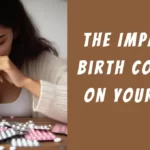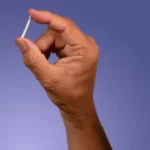
Many women wonder about the impact of birth control on their weight. If you’re considering stopping birth control or have already done so, you might be curious about how long does it take to lose weight after stopping birth control. Weight loss is a complex process influenced by various factors, including hormonal changes, lifestyle choices, and individual differences. In this article, we will delve into the topic of losing weight after stopping birth control, explore the factors that come into play, and provide practical tips to support your weight loss journey.
Related: 10 Pregnancy Contraceptives
How Long Does It Take to Lose Weight after Stopping Birth Control?
For the main heading, “How Long Does It Take to Lose Weight after Stopping Birth Control?” it’s essential to note that weight loss is not a linear process. Each woman’s experience will differ based on various factors. However, it’s generally expected that you may start noticing changes in your weight within a few weeks to a couple of months after discontinuing birth control. Keep in mind that this timeline is not set in stone, and it can vary significantly from person to person.
Hormonal Adjustments and Weight Fluctuations
After stopping birth control, your body undergoes hormonal adjustments. Hormones such as estrogen and progesterone, which play a vital role in regulating weight, can take some time to rebalance. Consequently, this can lead to temporary weight fluctuations. Some women may experience weight gain, while others might notice weight loss during this period.
Metabolic Rate and Weight Changes
Your metabolic rate can be influenced by birth control, and its adjustment after stopping the medication can affect weight loss. Birth control methods like the pill or hormonal IUDs may slightly lower your metabolic rate, which can make weight loss more challenging. However, once you discontinue birth control, your metabolic rate should return to its natural state, potentially facilitating weight loss.
Lifestyle Factors and Weight Loss
When considering weight loss, lifestyle choices are crucial. Exercise, diet, and overall physical activity levels significantly impact your ability to shed pounds. It’s important to adopt a healthy and balanced lifestyle to support your weight loss goals after stopping birth control. Incorporating regular exercise, such as strength training and cardiovascular activities, can help boost your metabolism and burn calories.
Dietary Considerations for Weight Loss
To maximize weight loss after stopping birth control, paying attention to your diet is essential. Focus on consuming nutrient-dense foods, including fruits, vegetables, lean proteins, and whole grains. Avoid excessive intake of processed foods, sugary drinks, and snacks high in saturated fats. Strive for a calorie deficit by consuming fewer calories than your body needs to maintain weight, but avoid overly restrictive diets that can be unsustainable.
Individual Differences and Weight Loss
It’s vital to remember that everyone’s body is unique, and weight loss experiences can vary significantly. Factors such as genetics, age, underlying health conditions, and lifestyle habits can influence how quickly or slowly you lose weight after discontinuing birth control. Comparing your progress to others may not be helpful, as your journey will be personal and distinct.
Monitoring Your Progress and Celebrating Non-Scale Victories
Instead of solely relying on the scale, focus on other markers of progress. Non-scale victories, such as increased energy levels, improved mood, and clothing fitting differently, are significant indicators of positive changes. Keep track of your progress by taking measurements, tracking body fat percentage, or using progress photos to visually observe changes over time. Remember that weight is just one aspect of overall health, and improvements in fitness, strength, and well-being are equally important.
Patience and Realistic Expectations
Patience is key when it comes to how long does it take to lose weight after stopping birth control? It’s important to set realistic expectations and understand that sustainable weight loss takes time. Rapid weight loss can often be unsustainable and may lead to regaining the weight later on. Aim for a gradual and steady approach to weight loss, focusing on making long-term lifestyle changes rather than seeking quick fixes.
Will I lose Weight faster if I stop taking Birth Control?
Stopping birth control may or may not lead to weight loss, and the effect varies from person to person. Here are some key points:
- Once you stop taking birth control, you may notice that you drop a pound or two within a few weeks as fluid retention decreases, but it is unlikely that you will lose a substantial amount of weight, if any at all.
- Women who used a progestin-only type of birth control (like injections, hormonal IUDs, or certain pills) may have gained a few pounds, so the scale might go down when they stop using them. However, if you want to lose weight, you’ll probably get more results from a better diet and more exercise than from going off your birth control.
- The synthetic progesterone (also called progestin) in hormonal birth control can actually increase your appetite. So, regaining a sense of your body’s natural cues post-birth control through mindful eating, cycle syncing one’s diet and exercise, and prioritizing good nutrition, good sleep, and stress management are all good ways to get your body and your weight back on track.
- Some forms of birth control can cause weight gain and an increase in breast size. When you stop taking the hormonal birth control that caused these side effects, these changes will be reversed. However, if any weight gain or loss experienced while using birth control was not caused by the medication, then stopping birth control may not lead to weight loss.
- Science shows that a third of women lose weight, a third gain weight, and a third stay the same when on the pill. There may be a combination of reasons for weight gain on the pill such as hormones, diet, or water retention, or it could just be that most women start birth control when they’re still growing. Still, you may notice that you drop a few pounds (mostly water weight) after you stop birth control.
- Some women may experience a decrease in appetite after stopping birth control, which could lead to weight loss. For example, one woman reported losing 20 pounds after stopping hormonal birth control due to a decrease in appetite.
Why is it hard to lose Weight after stopping Birth Control?
When stopping birth control, it can be difficult to lose weight due to several factors. Here are some reasons why it can be hard to lose weight after stopping birth control:
- Fluid retention: Birth control can cause fluid retention, which can lead to weight gain. When you stop taking birth control, you may notice that you drop a pound or two within a few weeks as fluid retention decreases, but it is unlikely that you will lose a substantial amount of weight.
- Increase in appetite: The synthetic progesterone (progestin) in hormonal birth control can actually increase your appetite. When you stop taking birth control, it can be difficult to regain a sense of your body’s natural cues post-pill to help you lose weight and feel your best.
- Hormonal changes: Any type of hormone-based birth control can change how you feel, and when you stop taking them, your body may need time to adjust to the hormonal changes. This can cause changes in appetite, mood, and energy levels, which can make it harder to lose weight.
- Increase in muscle tissue: Birth control can cause an increase in muscle tissue, which can lead to weight gain. When you stop taking birth control, you may notice a decrease in muscle tissue, but this may not necessarily lead to weight loss.
- Increase in body fat: Birth control can also cause an increase in body fat, which can lead to weight gain. When you stop taking birth control, you may notice a decrease in body fat, but this may not necessarily lead to weight loss.
- Individual differences: Every woman’s body handles hormones differently, so it’s difficult to predict how stopping birth control will affect weight loss. Some women may lose weight, while others may gain weight or stay the same.
How long does Birth Control take to leave your System?
Here is what experts say about how long it takes for birth control to leave your system:
- The hormones from the pill or minipill will leave your system 48 hours after the last pill was taken. Expect your menstrual cycles and ovulation to return to your “normal” within three months after stopping the pill.
- For most women, it takes only 2-3 days for hormone levels to return to normal after they stop taking most forms of hormonal birth control (pill, patch, ring, IUD, implant). The birth control shot can take 8 months to a year to wash out of your system if you have had at least 3 shots.
- An oral progesterone-estradiol pill (or “oral combination pill” or OCP) takes 40-225 hours to leave your system.
- The birth control pill is out of your system in one to two days.
What are the Benefits of getting off Birth Control?
Getting off birth control can have both benefits and side effects. Here are some potential benefits of quitting birth control:
- Increased sex drive: Some people may experience a decrease in sex drive while on birth control, and quitting it may help increase it.
- Improved mood: If birth control adversely impacted your mood, going off it might improve it1.
- Greater mental clarity: Many women report feeling greater mental clarity after getting off birth control.
- More peace of mind: Some people may feel anxious or uneasy about relying on a pill every day, and quitting birth control can eliminate that worry.
- More in tune with your body: Quitting birth control can help you feel more in tune with your body and its natural rhythms.
What are the Risks of stopping Birth Control?
Stopping birth control can have side effects, and they can vary depending on the person and the type of birth control they were using. Here are some potential risks of stopping birth control:
- Irregular periods: When you stop taking hormonal birth control, you might notice changes to your menstrual cycle.
- Breast tenderness: Some people may experience breast tenderness after stopping birth control.
- Changes in weight: Stopping birth control can cause weight fluctuations in some people.
- Headaches: Headaches are a possible side effect of stopping birth control.
- Acne: Some people may experience acne after stopping birth control.
- Changes in mood: Stopping birth control can cause changes in mood in some people.
- Risk of pregnancy: If you stop using birth control, you could get pregnant.
How long does it take for Menstrual Cycles to regulate after stopping Birth Control?
It can take several months for menstrual cycles to regulate after stopping birth control. Here are some key points:
- Most people who stop taking birth control pills can expect their first period to return relatively quickly, within a month or so.
- It’s common to experience irregular periods immediately after stopping hormonal birth control, and it can take several months for your cycle to regulate.
- Your menstrual cycle may get thrown off, but your period should come back within 3 months.
- Stopping any form of hormonal birth control removes external sources of progesterone or progesterone and estrogen. This changes the levels of these hormones in the body, which can cause temporary side effects, including changes in the menstrual cycle.
- Clinical studies have yet to explore the adverse effects of stopping hormonal birth control. The specific effects may depend on the type of birth control and factors specific to each person.
What are some Natural Ways to regulate Menstrual Cycles after stopping Birth Control?
Here are some natural ways to regulate menstrual cycles after stopping birth control:
- Optimize your nutrition status: Eating foods such as flaxseed, broccoli, and cashews can help balance hormones after birth control. It is important to replenish nutrients that birth control pills may deplete, such as zinc and B vitamins.
- Incorporate herbs: Some herbs can help regulate menstrual cycles, such as chasteberry, dong quai, and black cohosh.
- Optimize your circadian rhythm: Getting enough sleep and maintaining a regular sleep schedule can help regulate hormones and menstrual cycles.
- Reduce stress: Stress can disrupt hormonal balance and menstrual cycles. Practicing stress-reducing techniques such as meditation, yoga, or deep breathing can help regulate menstrual cycles.
- Exercise regularly: Regular exercise can help regulate menstrual cycles by reducing stress and improving overall health.
- Reduce sugar intake: High sugar intake can cause insulin resistance, which can disrupt hormonal balance and menstrual cycles. Reducing sugar intake can help regulate menstrual cycles.
- Incorporate healthy fats: Getting enough healthy fats, such as omega-3 fatty acids, can help regulate hormonal balance and menstrual cycles.
- Evening primrose oil: Taking evening primrose oil supplements can help regulate menstrual cycles.
Is Weight Gain after stopping Birth Control temporary?
Weight gain after stopping birth control can be temporary. Hormonal changes may cause water retention or minor alterations in metabolism, leading to temporary weight gain. Individual factors such as lifestyle and genetics also play a role. Consult a healthcare professional for personalized advice.
Conclusion
Losing weight after stopping birth control is a journey unique to each individual. While hormonal changes and metabolic adjustments can influence weight fluctuations, focusing on a balanced lifestyle with regular exercise and a healthy diet is key to achieving sustainable weight loss. Remember to be patient with the process, celebrate non-scale victories, and consult a healthcare provider if you have any concerns. By embracing a holistic approach and maintaining realistic expectations, you can navigate your weight loss journey successfully.
Frequently Asked Questions (FAQs)
Will I immediately start losing Weight after stopping Birth Control?
Weight loss timelines can vary, but it’s unlikely that you will see immediate results. Give your body time to adjust, and focus on healthy habits for sustainable weight loss.
Can Birth Control cause Weight Gain?
Some women may experience weight gain while on certain types of birth control due to hormonal changes. However, not all women will experience this, and the impact on weight can differ.
How can I speed up Weight Loss after stopping Birth Control?
Focus on a balanced diet, regular exercise, and maintaining a calorie deficit. Avoid crash diets and prioritize sustainable, healthy habits for long-term success.
Will I lose all the Weight I gained while on Birth Control?
Weight loss experiences vary. While some women may lose the weight they gained while on birth control, others may find it more challenging. Stay consistent with healthy habits and be patient with the process.
Are there any specific Exercises that can aid in Weight Loss after stopping Birth Control?
Engaging in a combination of cardiovascular exercises and strength training can be beneficial for weight loss. Consult with a fitness professional to develop a personalized exercise routine.
Should I consult a Healthcare Provider if I’m struggling with Weight Loss after stopping Birth Control?
If you’re facing difficulties in losing weight or have concerns about your health, it’s advisable to consult a healthcare provider who can provide personalized guidance and support.












